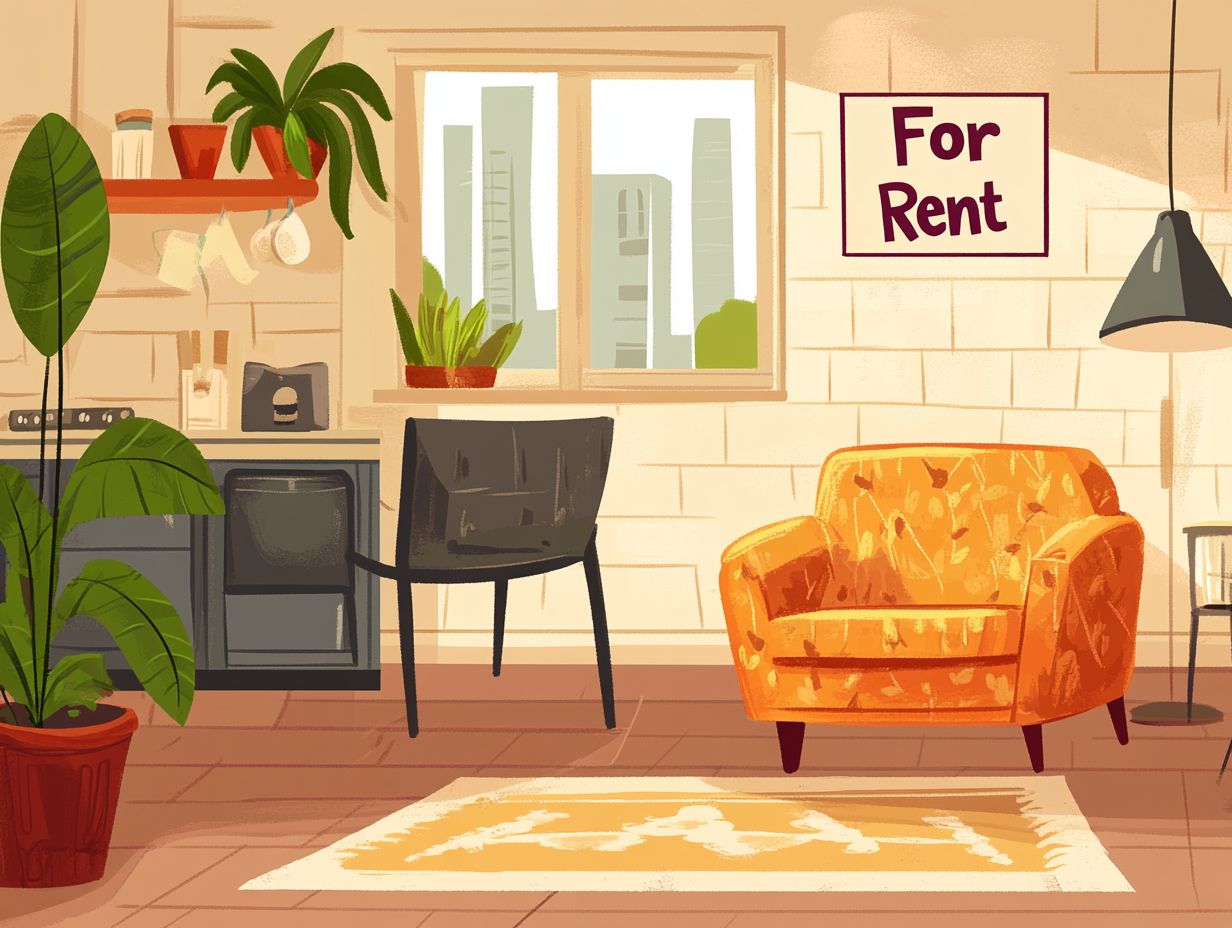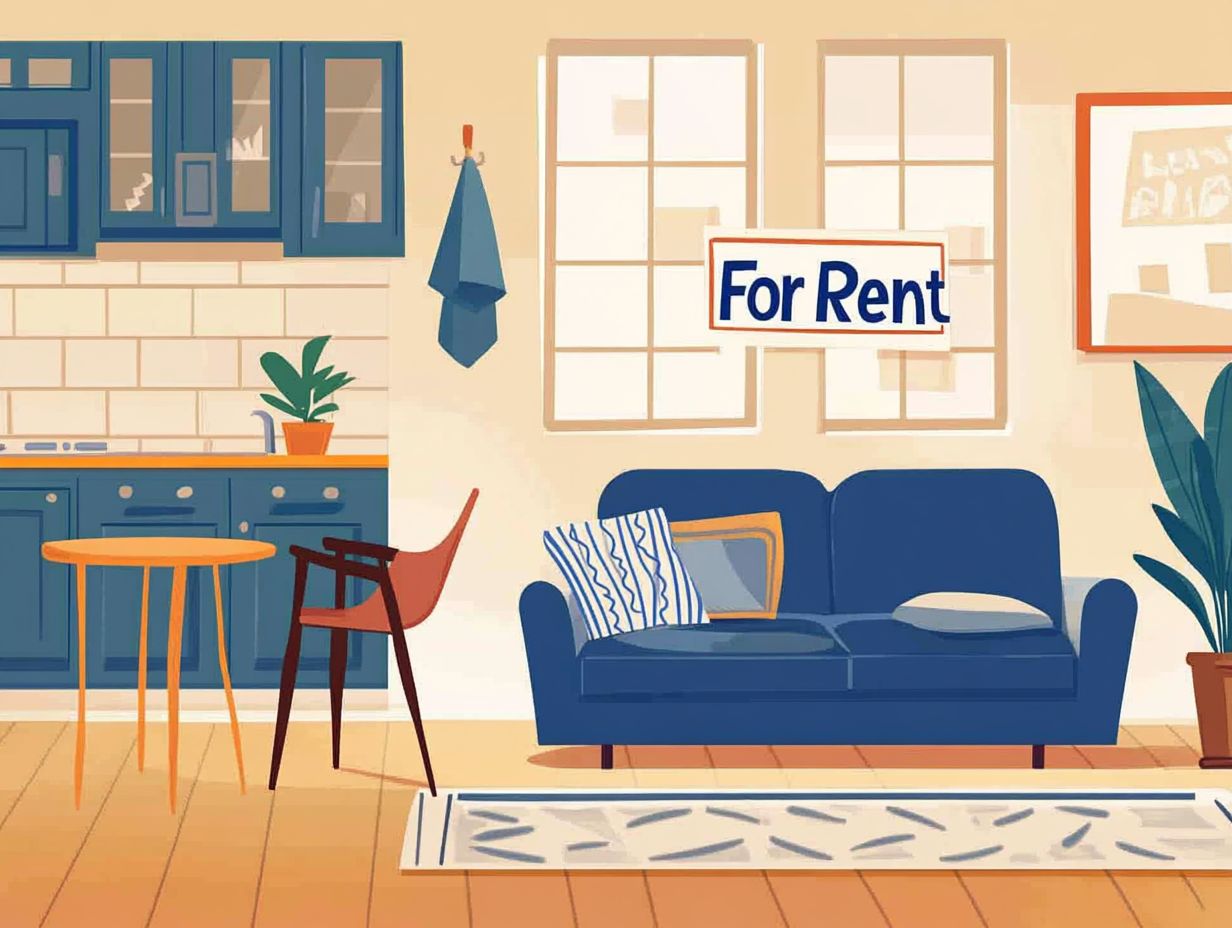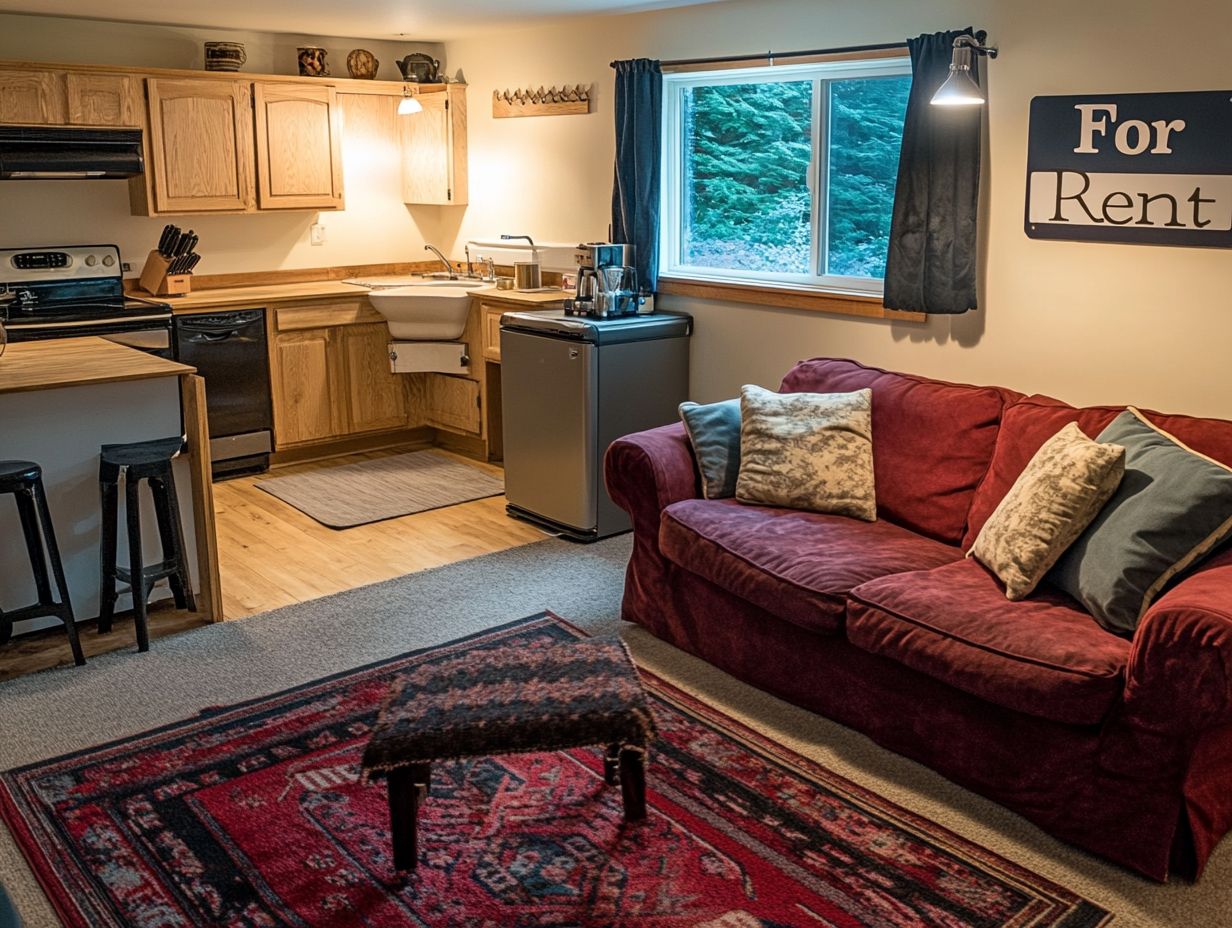What is Coverage for Temporary Rentals?
Navigating temporary rentals can be overwhelming. But don’t worry; we’re here to simplify insurance coverage for you! Understanding these nuances is essential for protecting your investment right now.
Whether you are a landlord renting out a property or a tenant searching for a short-term stay, knowing the details of temporary rental coverage is important.
This article explores what temporary rental coverage includes, the various types available, key factors to consider before making a purchase, and the many benefits it provides.
Equip yourself with the knowledge needed to make informed decisions, ensuring peace of mind and safeguarding your investment.
Contents
- Key Takeaways:
- Understanding Temporary Rental Coverage
- Types of Temporary Rental Coverage
- Factors to Consider Before Purchasing Coverage
- Benefits of Temporary Rental Coverage
- Frequently Asked Questions
- What is Coverage for Temporary Rentals?
- What does Coverage for Temporary Rentals typically include?
- Do I need Coverage for Temporary Rentals if I only rent out my property occasionally?
- Are there any specific requirements for Coverage for Temporary Rentals?
- Can I add Coverage for Temporary Rentals to my existing homeowner’s insurance policy?
- What should I do if I have a claim for my temporary rental property?
Key Takeaways:

- Temporary rental coverage provides protection for both property and liability during short-term stays.
- Factors such as rental duration, property location, and type should be considered before purchasing coverage.
- This coverage gives peace of mind to both landlords and tenants, ensuring a worry-free rental experience.
Understanding Temporary Rental Coverage
Temporary rental coverage is an essential type of insurance designed specifically for homeowners and landlords who lease their properties for short stays via platforms like Airbnb and Vrbo. This specialized coverage includes different options that address the unique risks associated with temporary rentals, such as property damage, guest liability (claims that you may face if someone gets hurt on your property), and loss of rental income elements that standard homeowners insurance often overlooks.
Understanding the intricacies of temporary rental coverage allows you to make informed decisions about your insurance needs and effectively safeguard your financial interests.
Definition and Purpose
Temporary rental coverage is specialized insurance designed to protect you from various risks associated with renting out your property for short durations.
This insurance is vital for property owners, ensuring that your assets remain secure while you generate income. It covers a wide range of potential issues, from damages caused by guests to liability claims arising from accidents on your property.
For example, if a guest accidentally spills wine on your carpet or someone suffers an injury from a slip and fall, this coverage can help you manage the financial fallout.
The claims process is straightforward, requiring just a submission of evidence and documentation, allowing you to minimize your financial exposure to unexpected incidents.
In essence, temporary rental coverage serves as your safety net, providing you with peace of mind as you navigate the complexities of short-term rentals.
Types of Temporary Rental Coverage
You should explore the various types of temporary rental coverage available, such as short-term rental insurance and landlord insurance. Each of these options is crafted to meet the unique risks and requirements associated with renting out a property for brief stays.
Understanding these coverage choices is essential for securing appropriate protection against the diverse liabilities that may emerge during your rental period.
Short-Term Rental Insurance

Short-term rental insurance offers specialized coverage tailored for homeowners and landlords renting out their properties on platforms like Airbnb or Vrbo. It addresses the unique risks associated with these scenarios.
This type of insurance typically protects you against guest injuries that may occur during a stay, shielding you from potential liability claims. It also covers property damage caused by tenants, ensuring that unforeseen incidents won t lead to substantial financial setbacks. It may also compensate you for lost rental income if your property becomes uninhabitable due to damages.
With costs varying based on factors such as location and property type, it s crucial to carefully consider the coverage limits compared to traditional homeowners insurance, which often doesn t cover short-term rental activities. By thoroughly assessing these options, you ll be equipped to make an informed choice that aligns perfectly with your needs.
Explore your options today!
Landlord Insurance
Landlord insurance is designed specifically for property owners like you who rent out their spaces. It offers essential protection against risks such as property damage, guest liability, and loss of rental income.
This specialized coverage goes beyond what standard homeowners insurance provides, as it tackles the specific risks that come with being a landlord and challenges you face. While homeowners insurance generally focuses on your residence, landlord insurance encompasses provisions for tenant-related issues and damages caused by your tenants.
Make sure to ask about coverage exclusions, such as damage from natural disasters or neglect by tenants, to avoid surprise costs. It’s also important to evaluate the financial stability of insurance carriers; selecting a reliable provider significantly impacts the likelihood of timely payouts during claims, ensuring a smoother experience as you manage your rental properties.
Factors to Consider Before Purchasing Coverage
Before you purchase temporary rental coverage, it s essential to weigh several critical factors. Consider the duration and frequency of your rentals, alongside the location and type of property you are offering.
These elements can profoundly impact the kind of insurance you require and the tailored coverage options available to meet your unique circumstances.
Rental Duration and Frequency
Rental duration and frequency are pivotal elements influencing the type of temporary rental coverage you require. They dictate how often your property is occupied and for what length of time.
Grasping these nuances is crucial for both property owners and renters. For weekend getaways, your insurance needs will differ significantly from those associated with long-term rentals, which typically require more comprehensive coverage due to extended occupancy.
The frequency of your rentals can also complicate the claims process. If you re frequently welcoming guests for short stays, you might find that specialized policies are necessary to address the higher turnover rates and the associated risks. Tailoring your coverage to fit your specific situation is essential, considering liability, property damage, and loss of income.
Property Location and Type

The location and type of your property play a pivotal role in determining the right temporary rental coverage. These factors directly influence risk levels and insurance costs.
Take California, for example an area known for its wildfires and earthquakes. Here, rental insurance premiums tend to be higher, reflecting the increased risk of property damage. Conversely, if your property is located in states like Maryland or Ohio, where such natural disasters are less common, you ll likely find more affordable coverage options.
Navigating local regulations is equally important, as each state has its unique requirements that could affect the type and amount of coverage you need. Review your property type thoroughly whether it s a single-family home, an apartment, or a vacation rental to tailor your policy to address the specific risks associated with your property.
Benefits of Temporary Rental Coverage
Temporary rental coverage presents numerous advantages for property owners and landlords. It offers comprehensive protection against various risks, such as guest injuries, property damage, and loss of rental income.
This specialized insurance not only safeguards your financial interests but also delivers invaluable peace of mind. Imagine hosting guests without worrying about unexpected incidents!
Don’t wait! Protect your investment today with the right temporary rental coverage!
Protection for Property and Liability
One of the primary benefits of temporary rental coverage is the strong protection it offers for both your property and liability. This coverage safeguards you against financial losses from property damage and accidental guest injuries.
As you rent out your home to travelers, this protection becomes vital. It shields you from physical damage to your property and addresses liability concerns related to guest injuries.
For instance, if a guest trips and falls, liability insurance can cover legal fees or medical expenses. This alleviates some of the stress from such incidents and helps you focus on providing a great experience for your guests.
You might also consider adding extra coverage options tailored to your unique needs. This ensures you have peace of mind in case of unforeseen circumstances, which is crucial for maintaining your rental business.
Peace of Mind for Landlords and Tenants
Temporary rental coverage offers invaluable peace of mind for landlords and tenants alike. You can rest easy knowing you’re protected from potential financial losses and liabilities during the rental period.
This coverage not only protects property owners from unexpected damages but also assures tenants they won t be burdened with unforeseen events. If claims arise, the streamlined processes from insurance companies ensure quick resolutions, allowing everyone to enjoy their rental experience.
The excellent customer service from these insurance providers means any queries or concerns you have will be addressed swiftly. This level of security helps landlords secure their rental income while providing tenants with a greater sense of stability.
Frequently Asked Questions

What is Coverage for Temporary Rentals?
Coverage for temporary rentals refers to insurance that protects individuals or businesses renting out their property on a short-term basis. This can include vacation rentals, short-term rentals, and Airbnb rentals.
What does Coverage for Temporary Rentals typically include?
This coverage typically includes liability protection for guest injuries, property damage coverage, and lost income if the property becomes uninhabitable due to a covered loss.
Do I need Coverage for Temporary Rentals if I only rent out my property occasionally?
Yes, it is highly recommended to have coverage, even for occasional rentals. Accidents can happen anytime, and this coverage protects you from financial losses.
Are there any specific requirements for Coverage for Temporary Rentals?
Requirements may vary by provider. Common requirements include a certain level of liability coverage, smoke detectors, fire extinguishers, and signed rental agreements from guests.
Can I add Coverage for Temporary Rentals to my existing homeowner’s insurance policy?
Some homeowner’s insurance policies may offer this coverage as an add-on. However, you should check with your provider, as a separate policy may be needed for adequate protection.
What should I do if I have a claim for my temporary rental property?
If you have a claim, such as property damage or a liability issue, contact your insurance provider as soon as possible. They will guide you through the claims process to ensure you receive the coverage you need.






